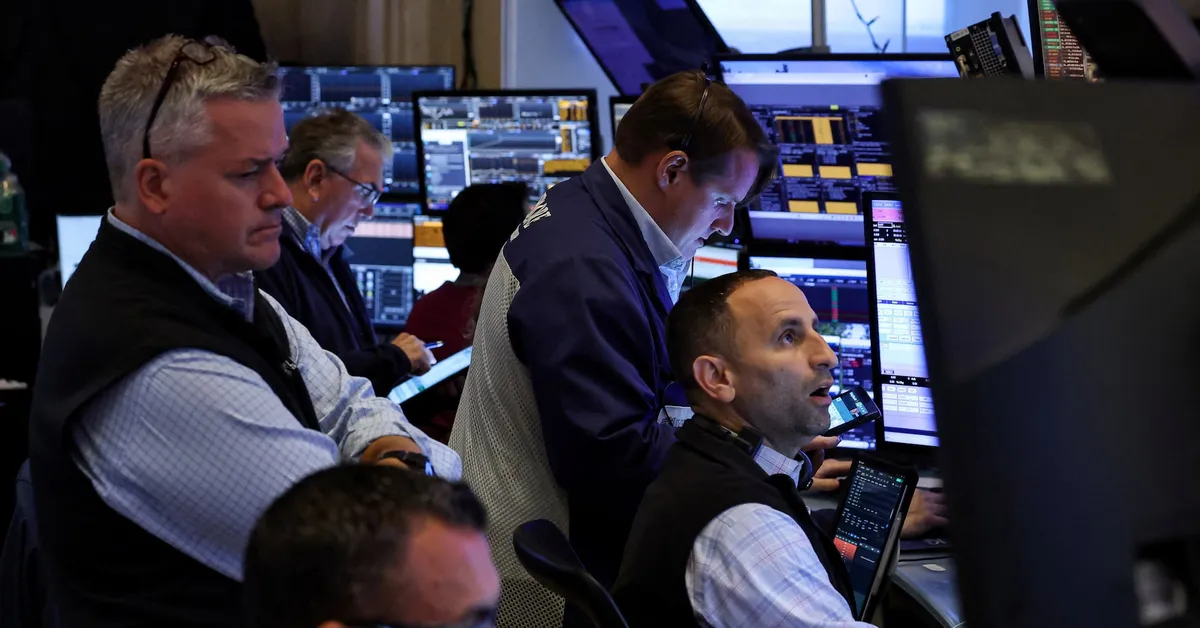
Nvidia has emerged as a dominant force in the tech industry, primarily driven by its innovative artificial intelligence (AI) products. Over the past few years, Nvidia's significant share price increases have not only elevated its status but have also positively impacted the broader tech sector and the overall market. Notably, last month, Nvidia became the first company to achieve a staggering market value of over $4 trillion.
As Nvidia approaches its upcoming earnings report, investor sentiment has shifted to a more cautious stance. Matthew Maley, the chief market strategist at Miller Tabak, stated, "When the group goes down and the most important stock in the group reports earnings, that is going to have a bigger impact than usual." This highlights the critical role Nvidia plays in the tech landscape, particularly as its stock has surged approximately 30% thus far in 2025, marking an incredible gain of over 1,400% since October 2022.
Based in California, Nvidia has become a symbol of the burgeoning excitement surrounding AI technologies. The company's advancements have significantly influenced the share prices of numerous tech firms and those involved in essential AI infrastructure, such as power generation and cooling systems. According to Matt Orton, chief market strategist at Raymond James Investment Management, "Nvidia is almost looked at as a proxy to what is happening in artificial intelligence." This connection underscores Nvidia's pivotal role in driving the broader AI trade, which has been a primary contributor to the S&P 500's performance this year.
Despite the enthusiasm, analysts have noted some cautionary trends within the AI sector. For instance, comments from OpenAI CEO Sam Altman suggested that investors may be becoming overly optimistic about AI, which could explain some of the recent declines in tech stocks. Nevertheless, Nvidia's upcoming results are expected to cap off a second-quarter earnings season for U.S. corporations that has largely exceeded expectations, bolstering investor confidence.
According to LSEG IBES, S&P 500 company earnings are projected to have increased by 12.9% compared to the previous year, significantly higher than the anticipated 5.8% rise as of July 1. Nvidia is forecasted to report a 48% increase in earnings per share, with revenue estimates reaching $45.9 billion for its second fiscal quarter, indicating robust demand for its products.
Prominent tech companies focusing on AI have recently raised their capital spending estimates, which is expected to benefit Nvidia, as noted by Paul Roach, portfolio manager at Allspring Global Investments. He remarked, "Nvidia's commentary on the demand side should be more bullish just because their largest customers have all kind of upped their capex guidance over the last few quarters." This broadening demand for Nvidia's products beyond just the largest tech firms reflects the growing reliance on AI technologies across various sectors.
In the coming week, investors will also be closely monitoring U.S. economic data, particularly concerning consumer sentiment and inflation. Despite recent tech-driven declines, the S&P 500 remains up over 8% for the year and is less than 2% away from its record closing high. However, Maley warns that major equity indexes may struggle to maintain upward momentum if tech stocks falter, as tech constitutes a significant 33% of the S&P 500's weight. Nvidia alone represents nearly 8% of the index. "If these tech stocks continue to fall, that means the indexes will continue to fall," Maley cautioned. "No way around it."
As the market awaits Nvidia's earnings report, the company's performance will likely serve as a bellwether for the tech sector and its future trajectory. Investors and analysts alike will be keenly observing the developments in this rapidly evolving landscape.